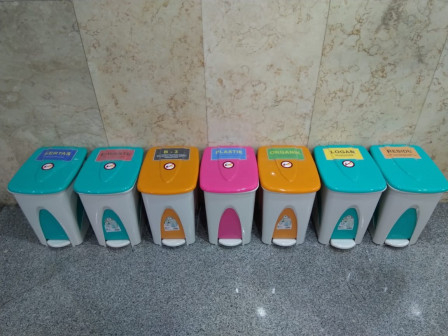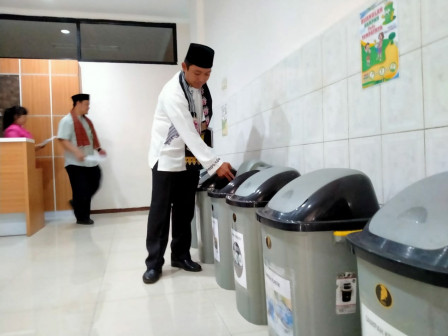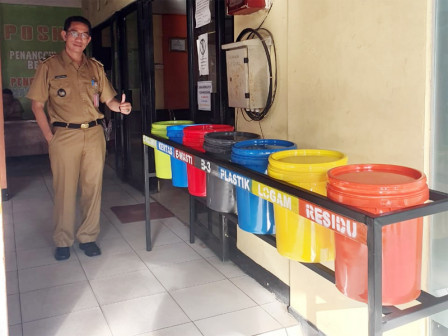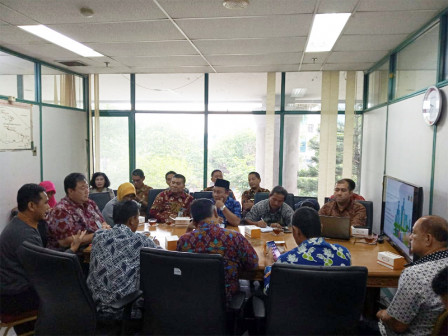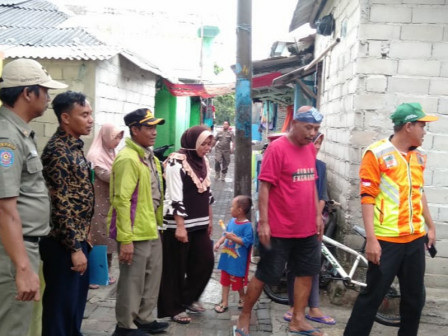PSBB, Waste Sorting Campaign in East Jakarta Intensified
Reported by Nurito | Translated by Nugroho Adibrata
The East Jakarta Environment Sub-agency continues to intensify the campaign of waste sorting program amid the COVID-19 pandemic and the large-scale social restrictions (PSBB). It aims to reduce the volume of waste dumped in Bantar Gebang Landfill, Bekasi, West Java.
Through Samtama, citizens are urged to do the reduction, sorting and processing of waste in each RW
This program has long been running in a number of RWs spread over East Jakarta through Joint Responsibility Waste (Samtama). Those urban villages are RW 07 in Kayu Putih Urban Village (Pulogadung), RW 01 in Pinang Ranti Urban Village (Makasar), RW 01 in Pondok Bambu Urban Village (Duren Sawit) and RW 09 in Ciracas Urban Village (Ciracas).
"Through Samtama, citizens are urged to do the reduction, sorting and processing of waste in each RW. The resulting inorganic waste is taken to the waste bank from each RW and then processed through composter barrels," expressed East Jakarta Environment Sub-agency Head, Herwansyah, Monday (4/20).
Waste Sorting on Tidung Island Keeps Being Socialized to LocalsThey also recycle waste into a new item. By doing so, RW 07 in Kayu Putih is able to reduce waste by 45 percent than usual.
Then in 2020, those RWs have been upgraded to a sub-district scale, which is implemented on 27 RWs in Pulogadung Sub-district. Unfortunately it is unoptimal due to COVID-19 pandemic.
To campaign for waste sorting programs, his sub-agency continues to hold socialization via WhatsApp, events such as National Waste Care Day (HSPN) and waste bank services through jemput bola system for locals who have sorted their inorganic waste.
"Despite they have touched the program, we have to educate them and hold campaign action. Considering waste sorting does indeed require awareness from local people," he said.
From the waste sorting program, the volume of waste disposed at Bantar Gebang Landfill has decreased. On regular days before COVID-19, its volume reached 1,958.2 tons per day and now it is 1,618.52 tons per day or has decreased by 339.68 tons per day or around 17.34 percent.

